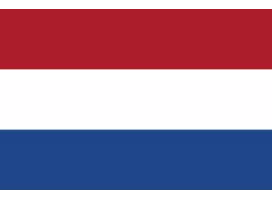- Home
- Netherlands
- Netherlands import / export regulation
Netherlands customs regulation
Import and Export laws of Netherlands
Netherlands is a small country with around 17M Dutch. Official language is Dutch. Netherlands uses metric system (kilograms, centimeters, °C). Time zone is UTC+01:00 with daylight saving time. Currency used in Netherlands is Euro (EUR).
🏙️ Amsterdam🗣️ Dutch
👨👩👦👦 17M ☀️ ~10 °C 🌧 ~64 mm 👍 Developed 🚩 42k km2 (16k mi²)
Import Regulation
Tobacco 🚬
200 cigarettes;
100 cigarillos;
50 cigars;
250g of smoking tobacco; or
A proportional combination of these goods (such as 100 cigarettes and 50 cigarillos).
Currency 💵
There are no restrictions on the importation of currency into the EU.
Funds of more than €10,000 must be declared to the customs authorities.
Prohibited ⛔
Weapons, ammunition, and explosives, including objects that resemble real weapons.
Counterfeit articles may not be imported if the traveller intends to use them for commercial purposes.
Drugs such as hashish, cocaine, and heroin.
Restricted ⚠️
Endangered animals, plants, and their derivative products protected under the Convention on International Trade in Endangered Species (CITES) may require protected species permits. For further information, please visit theNetherlands Enterprise Agency.
Cats, dogs, and ferrets are subject to a mandatory health inspection at the first point of entry on EU territory. They must also have a microchip or tattoo, and have been properly vaccinated against rabies. A Common Veterinary Entry Document certifying the healthy inspection must be provided with the customs declaration. Pets travelling within the EU must have a valid pet passport. For further information, please visit theNetherlands Food and Consumer Product Safety Authority.
Weapons used for hunting, shooting, and airsoft sports may be imported with a permit. For further information, please visit theCentral Import and Export Office.
Certain cultural goods, such as art and antiques, may require a licence to be imported. For further information, please visit theState Inspectorate for Cultural Heritage.
Food products of animal origin, such as meat, dairy, and eggs, may only be imported from outside the EU with a health certificate.
2kg of products of animal origin such as milk powder, baby food, and food for medical purposes can be brought in personal baggage as long as they are still packaged and do not require refrigeration.
Most plants, flowers, fruit, and vegetables require a phytosanitary certificate if they are being imported from outside the EU. If the quantity is below 5kg, this certificate may not be required. For further information, please visitPhytosanitary Products..
Other rules ℹ️
Medicines for personal use. Travellers may be asked to provide a prescription for certain medications.
Personal items of non-commercial nature worth up to €430 when travelling by air or sea.
Personal items of non-commercial nature worth up to €300 when travelling by land.
Export Regulation
Prohibited ⛔
All items in the prohibited import list.
Restricted ⚠️
There are no restrictions on the export of currency if leaving for another EU country. Funds of more than €10,000 must be declared when leaving the EU.
Protected species and products protected under CITES. A permit is required for export.
Cultural goods may require a licence for export. For further information, please visit theState Inspectorate for Cultural Heritage.
Countries nearby Netherlands
More on Netherlands travel and visa information
All the informations you need to schedule your trip to Netherlands.








